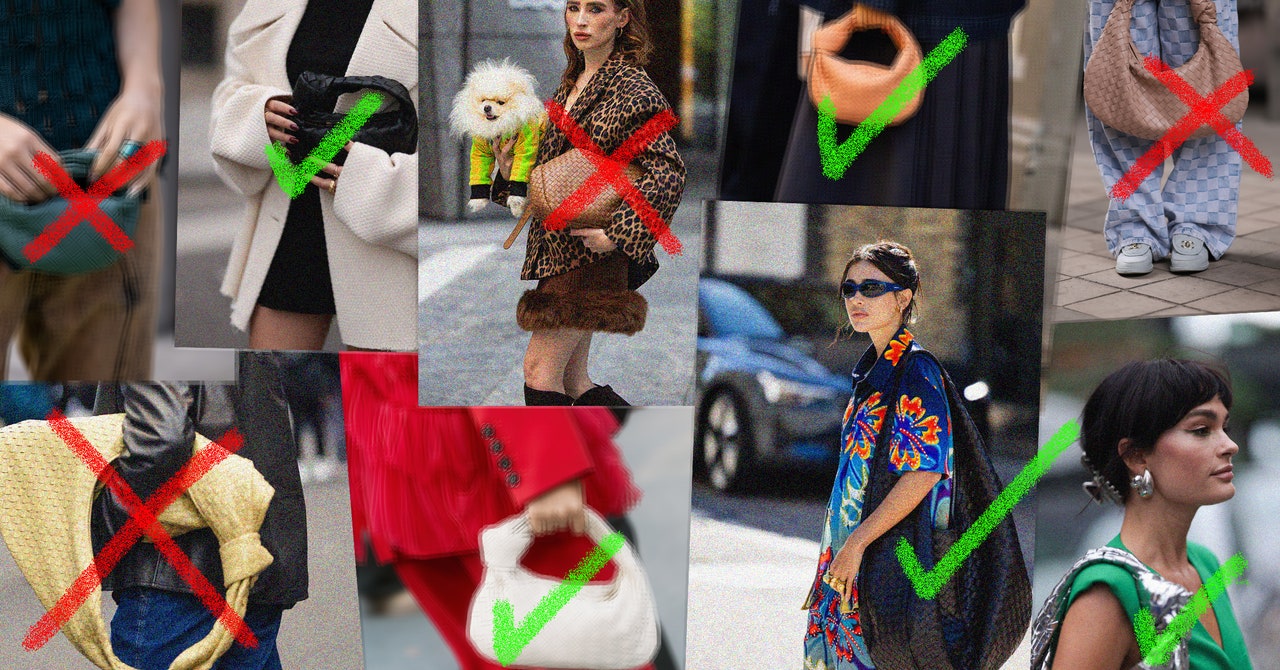High-End Fashion Dupes Are Soaring Where Knock-Offs Never Could Leave a comment
“They’re the architects of their very own issues,” continues Sherwood. “By making a lot of their merchandise not concerning the tangible product, however concerning the intangible facets of the manufacturers – these horny advertisements, the celebs who carry your merchandise, the shops, the shiny advertisements, the slogans, the heritage backstory, all that stuff that isn’t really the product itself.”
In flip they’ve created an infinite hole between what customers are literally paying for and the true worth of the product. As these corporations have more and more pursued the ultra-wealthy, they’ve left a spot available in the market that different manufacturers, desirous to capitalise, are beginning to fill. “They know that the costs on the very prime of luxurious are too excessive to mirror the precise worth,” Sherwood says. “However have turned these notable silhouettes and types into fascinating objects {that a} dupe model can free trip off of.”
Then, lately, the veneer started to crack even additional. In March, Italian luxurious model Loro Piana turned embroiled in scandal after an investigation revealed the fabric behind their $9,000 sweaters was sourced by low-paid staff in Peru. Just some months later, in July, Italian prosecutors alleged sweatshop-like circumstances in factories supplying sure merchandise for high-end labels equivalent to Dior and Armani. The revelations triggered outrage amongst customers, lots of whom had lengthy trusted these manufacturers to uphold the very best requirements of workmanship and ethics.
Throughout on-line boards just like the r/handbag subreddit, once-loyal clients voiced their disillusionment. For a lot of, these scandals revealed that the luxurious manufacturers they idolised weren’t dwelling as much as their guarantees. Each Loro Piana and Dior have denied the allegations. Nonetheless, The Business of Fashion revealed that Milan’s public prosecutor stated in a court docket doc that they’d discovered “an unlawful apply so entrenched and confirmed [that it could] be thought of a part of a broader enterprise coverage solely aimed toward rising revenue.” Neither firm has been charged in relation to the probe.
Such reputational harm couldn’t have come at a worse time for luxurious manufacturers. Coupled with the rise of dupe tradition, these scandals are forcing customers to rethink their relationship with high-end items. If craftsmanship is now not distinctive, and moral practices are known as into query, what precisely are individuals paying for once they purchase luxurious?
Rebuilding the Dream
Current gross sales figures underline simply how far demand for luxurious mega-brands has fallen from its post-pandemic highs. In July, among the business’s largest gamers reported disappointing revenues for the second consecutive quarter. LVMH, the world’s main luxurious conglomerate, missed gross sales estimates, whereas Gucci’s dad or mum firm Kering, skilled a decline of 11%. Different main manufacturers like Richemont and Burberry additionally reported disappointing figures, with first-quarter gross sales plummeting by a staggering 20%.
On the coronary heart of luxurious’s present struggles is the erosion of the very dream that after propelled the business. The disconnect between the advertising and marketing mythology and the truth of manufacturing has left customers feeling disillusioned, that means the times of blindly paying a premium for a emblem could also be in danger.
The democratisation of knowledge and shopper energy by social media has performed an enormous half on this. Platforms like TikTok and Reddit are stuffed with conversations that problem the business’s worth proposition, which has made it a lot more durable for luxurious manufacturers to manage their narrative.
To regain their place, Brittany Steiger, principal analyst of retail & eCommerce at Mintel says they might want to deal with what as soon as made them so fascinating—authenticity, superior craftsmanship, and a story of status that feels each aspirational and attainable. Some consultants counsel that embracing extra clear practices and really dwelling as much as their moral and high quality guarantees may be the best way ahead. Manufacturers that fail to take action, might discover themselves more and more irrelevant in a world the place high-quality dupes proceed to achieve floor.
It’s clear that the previous mannequin of luxurious has been disrupted, and it’s now not nearly worth anymore. Within the battle between heritage and worth, customers are asking extra questions—and luxurious manufacturers will need to have higher solutions. And in the event that they don’t, there’s an entire business on the sidelines who do.

